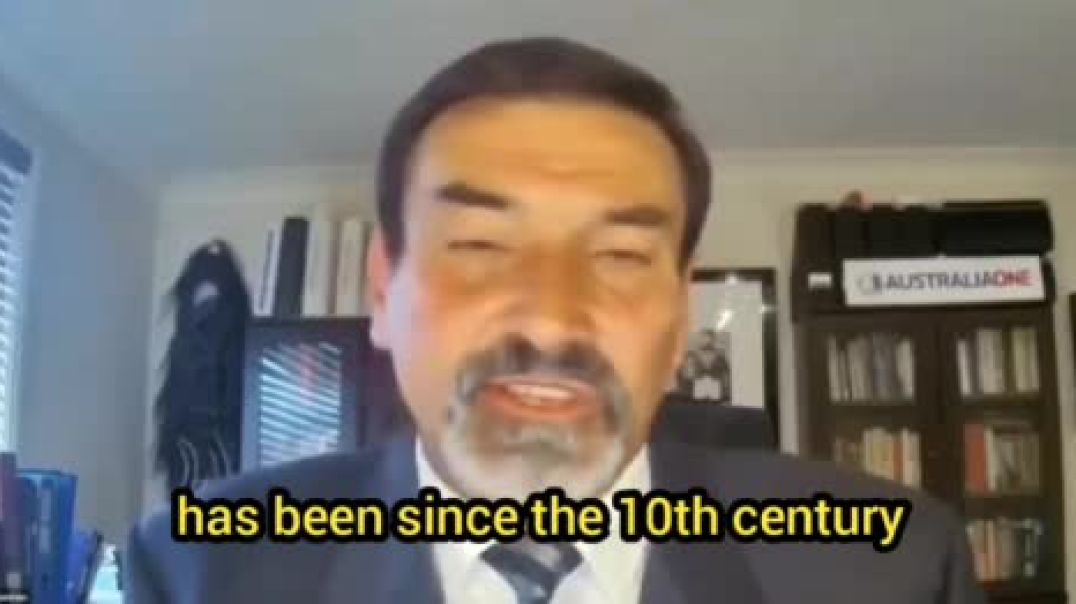Please donate now to help fund our work
- Film & Animation
- Music
- Pets & Animals
- Sports
- Travel & Events
- Gaming
- People & Blogs
- Comedy
- Entertainment
- News & Politics
- How-to & Style
- Non-profits & Activism
- McIntyre Report
- Jamie McIntyre uncensored
- RAW Report
- Candace Owens
- Steve Kirsch
- Tucker
- Bongino
- Elon musks
- Alan Jones Australia
- RT News
- Wayne Crouch Show
- Other
Leo Frank Trial - Luther Rosser Closing Arguments Part 1
In his address to the jury, Mr.Rosser emphasizes the value of impartiality and the need to do so without passion or cruelty when deciding whether to take a man's life. He explains that because they are distinguished from careless people who wander aimlessly or in fits of reverence, jurors are different from people who are out on the streets. He also stresses how crucial it is to be impartial and pass on a man's life without passion or cruelty because it is their responsibility to do so. The detectives who tracked down two people to swear against Frank, Dalton and Conley, are the most crucial details in this trial . Dalton stole three times in Walton County before moving to another county, where he most likely went to avoid more trouble. Mr. Arnold told him in his ear as he took the stand that he was a thief, and he started to evade and flinch.
He knew he was a thief when he walked away from the stand. Dalton traveled to Atlanta, underwent a change of heart, joined a religious group, and persuaded them that he was no longer acting immorally. The narrator's belief in the divine power of regeneration and the possibility of reformation make up the text's most crucial details. One kind of man, though, cannot be changed: once a thief, always a thief. When they crucified the narrator and hung him on the cross on the hill, the narrator's master recognized the traits of a thief. Dalton defiled the name of his race, was a thief and worse, but after joining the church, he turned into a respectable, credible man. He was proud to respond in the affirmative when asked if he had ever visited that depressing, filthy factory basement with a woman for immoral purposes. Dalton had never before been the center of attention. The key information in this passage is that Dalton was questioned about his guilt and that, if he had fallen, he boasted and braggadocio about it.
He claimed he had no idea that she was such a peach that he was unable to look away to look at Frank's woman. Conley offers a different account, claiming that Frank kept the peach and lemon for himself and that Dalton had to find him a new partner. According to Dalton's account, he took that woman into the factory, into a filthy, unpleasant footed hole where slime oozed and where no respectable dog or cat would go, and there he satisfied his passion.
The most crucial information in this passage is that Dalton and Conley went to the Clark Wooden Ware Company at 2:00 on a Saturday afternoon last year and left an Uzi trail behind them. Additionally, they looked for evidence that would expose the factory as an evil entity. Only Frank could make the statement to the jury; neither he nor Mr. Dot Arnold were aware of what Frank would say when he took the stand. In addition, he claimed that it would be impossible to round up 100 working women and girls in Atlanta using a fine-toothed comb, and that no working men in Atlanta would be so cold-blooded as to permit such conditions. Last but not least, neither Mr. Dot Arnold nor Frank knew what he would say when he took the stand; his statement to the jury was entirely his own work.
The speaker's ability to demonstrate that Frank's claim was true and the fact that they were not required to elevate Frank's character are the text's most crucial details. Despite the fact that some people have claimed he has a bad character, the speaker maintains that he generally has a good character. He also says that if the good and decent people who live nearby and know him come up and say that his character is good, the speaker will believe them. The speaker also says that as he gets older, he becomes gentler and that he wouldn't think or say anything bad about those misinformed young girls who claimed Frank was a bad man. The most crucial information in this passage is that Miss Maggie Griffin, Mrs. Dot Donegan, Miss Johnson, Nellie Potts, Mary Wallace, Estelle Wallace, and Carrie Smith were the only factory employees who had worked there since 1908 to have claimed that Frank had a bad character.
In the hundreds of people who have worked there since 1908, only these two have claimed that Frank is a bad person, and they were unable to persuade any men to leave the factory and swear against him. It is hypothesized that the long-legged Gantt would have known about Vice if the factory had been his den.
Due to his dislike of Frank, who Gantt does not like, Gantt was fired from the factory. There have been allegations that Mary Phagan learned how to work from Frank, but Miss Robinson refutes these claims. Although it has no meaning, he also called her Mary. Willie Turner, who has no grudges against Rosser or Luther, is the next person to be arrested. Due to his dislike of Frank, who Gantt does not like, Gantt was fired from the factory.
The accusations made against Luther and Willie Turner are the most crucial information in this text. Miss Robinson is alleged to have observed Frank instructing Mary Phagan in how to work, but Miss Robinson disputes this. Willie Turner observed Frank conversing with Mary Phagan in the middle room, but there was no indication of lascivious lust in her observations. The text also discusses the tactics the detectives employed against Willie Turner, including how they handled him and how Dorsey treated him. The text does not support the plot Hooper had so much to say about, but it does mention that Willie Turner saw Frank talking to Mary Phagan in the open. The detectives' theories against Willie Turner are the most significant details in this text. Miss Robinson is alleged to have observed Frank instructing Mary Phagan in how to work, but Miss Robinson disputes this. There is no evidence of the lascivious lust that Willie Turner is supposed to have witnessed when he observed Frank speaking to Mary Phagan in the middle room.
Willie Turner has also been the target of detective tactics, including how Dorsey handled him and how they handled him. Willie Turner overheard Frank and Mary Phagan conversing in the middle room, but there is no indication of lascivious lust. Willie Turner has also been the target of detective tactics, including how Dorsey handled him and how the detectives themselves handled him. Willie Turner has also been the target of detective tactics, including how Dorsey handled him and how they handled him. The most crucial information in this passage is that Frank was with a young child in an open factory in front of Levy Quinn's office, and that he never made inappropriate advances toward her. Grace Hicks and Helen Ferguson at Magnolia Kennedy dispute Dewey Hool's claim that she saw Frank placing his hand on Mary Phagan's shoulder and assert that Frank was not acquainted with Mary Phagan. Hooper asserts that Frank planned to bring the girl there on the Saturday before she was killed and that he was unaware of the identities of some of the pay envelopes that were left over from the previous Friday.
Despite Magnolia Kennedy's sworn denial, Helen Ferguson insists that she asked Frank for Mary Phagan's pay on Friday and that he refused to give it to her. Mary Phagan, a woman who had spent two days working in the factory, was killed, and Frank is accused of it. He is accused of being anxious, but Black, Darley, Sig Montag, and Isaac Haas all acknowledge that he is anxious. Frank is also accused of not answering the phone when they called him that morning, which may have been caused by the meal he had the previous evening. In addition, they claim that he didn't answer the phone when they called him that morning, which may have been a result of the meal he had the previous evening. Frank is charged with killing Mary Phagan, but Black, Darley, Sig Montag, and Isaac Haas all admit to being anxious as well due to their connections to the defendant.
The most significant information in this recording is that Grace Hicks and Helen Ferguson at Magnolia Kennedy contradict Dewey Hool and state that Frank never knew Mary Phagan, despite Dewey Hool's claim that he saw Frank placing his hand on Mary's shoulder. Jim Conley claims that at 4:00 on a Friday afternoon, Frank told him to come back the next morning. Hooper claims that Frank planned to get the girl there on the Saturday that she was killed. Helen Ferguson claims Frank refused to give her Mary Phagan's pay and told her to come back the following day to collect it on her own. Frank was anxious, according to Black, Darley, Sig Montag, and others. The most crucial information in this text is that Isaac Haas and Mr. Darley were both anxious, and that the girls in the factory were so anxious that they were unable to work the following day. Frank's nerves jangled as he gazed at Mary Phagan's disfigured form and crushed virginity. When they called him that morning, he wasn't awake, and the body was discovered. As a result, it's possible that some of the characters were dozing off when the breakfast bell rang and were hanging out of nervousness.



















